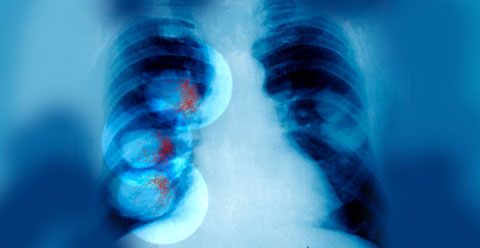Cancer is one of the most prevalent terminal diseases in the world. Striking almost anyone, anytime, anywhere, this condition is extremely painful, for both, the patient and the family alike.
There are so many factors that contribute towards cancer like diet, environment, genetics, and not all can be controlled. While some people with family history of cancer should get regular and earlier screening, however, all men and women after their 50s should talk to their doctor about cancer screening.

Breast, ovarian, colorectal and lung cancers can be effectively found in the initial phases of the disease by regular screening. Breast cancer involves getting screening mammography whereas ovarian cancer screening involves getting pap smear. Colorectal cancer requires annual or so colonoscopy sessions. Lung cancer however involves getting a CT or an MRI in Islamabad from.
However, screening processes are only relevant to increase the survival rate for certain cancer. In other cases, screening does not have a profound impact on survival of the patient.
How is cancer diagnosed?
Once cancer is suspected, doctors will start the tedious process of ascertaining the presence of cancer, its stage etc. as well. Complete patient history is taken, and a detailed patient profiling is done which involves different tests and examinations.
Physical examination
Physical examination is very important to find any tumor or lump. It also helps to determine the location(s) of cancer. It not only involves feeling for a lump, but any changes in the skin color or organ enlargement is also a sign of concern.
Lab tests
Laboratory tests include blood, urine and stool sample testing. This is done to find any anomaly in the body as indicated by the varying levels of different substances in the body. Moreover, these tests also help to find tumor markers.
Tumor markers include substances produced by the cancerous cells, or those substances produced by the normal cells of the body in response to these cells. They are thus very useful in determining and diagnosing cancer.
Imaging tests
Radiology tests play a pivotal role in cancer diagnosis, as they help the doctor locate the tumors, if any. There are several different types of tests that are utilized as per the condition and prescription of the doctor.
CT scan gives a 3-dimensional image of the respective body region, and thus makes it possible to find any tumors present. It also is used in assisting procedures like radiation therapy etc.
Similarly, X-rays and ultrasounds can also be used as well. MRIs are also used in many instances for 3-D view. Since it makes use of radio waves, unlike the more dangerous X-rays, MRIs are preferred in certain instances for patients who can’t undergo a CT scan.
Nuclear scan uses radioactive material to produce the images from inside of the body. A 3D version of this scan is the PET scan. It is very effective in finding the cancerous cells anywhere in the body.
Biopsy
Biopsy is an integral part of the cancer diagnosis. Once the tumor is detected, a sample of the cells are taken, and they then undergo pathology tests to ascertain their cancerous nature.
It is a very important step in cancer treatment as well, as it helps to disclose valuable information about the disease. How this procedure is carried out is contingent on where the cancer is located etc.
An easy way to get the cell sample is by a needle. Their procedure is carried out for the cancers of the bone marrow, live, breast, spine, prostate etc. However, for the cancers of the GI tract like esophageal, colon etc., endoscopy and colonoscopy are done. Similarly, cancer of the respiratory system also involves bronchoscopy.
However, some cases may even involve surgery as well. Depending on the level of penetration and the sample to be removed, the incision will vary.
In the excisional biopsy, the entire clump of the cancerous or the anomalous tissue is removed. On the other hand, in incisional biopsy, just a small sample is removed. Moreover, the patient might also be administered anesthesia during surgical biopsy.
Some interventional biopsies are also conducted under the guidance of image tests, for example, CT scan in Lahore is also used as an interventional procedure to collect tissue samples.
Final note
The fact that cancer does not always get diagnosed in time makes the disease even more complicated. Certain types of cancers like stomach, lung, prostate cancers generally are not noticed until the cancer has spread or metastasized. It is thus important to have regular checkups.